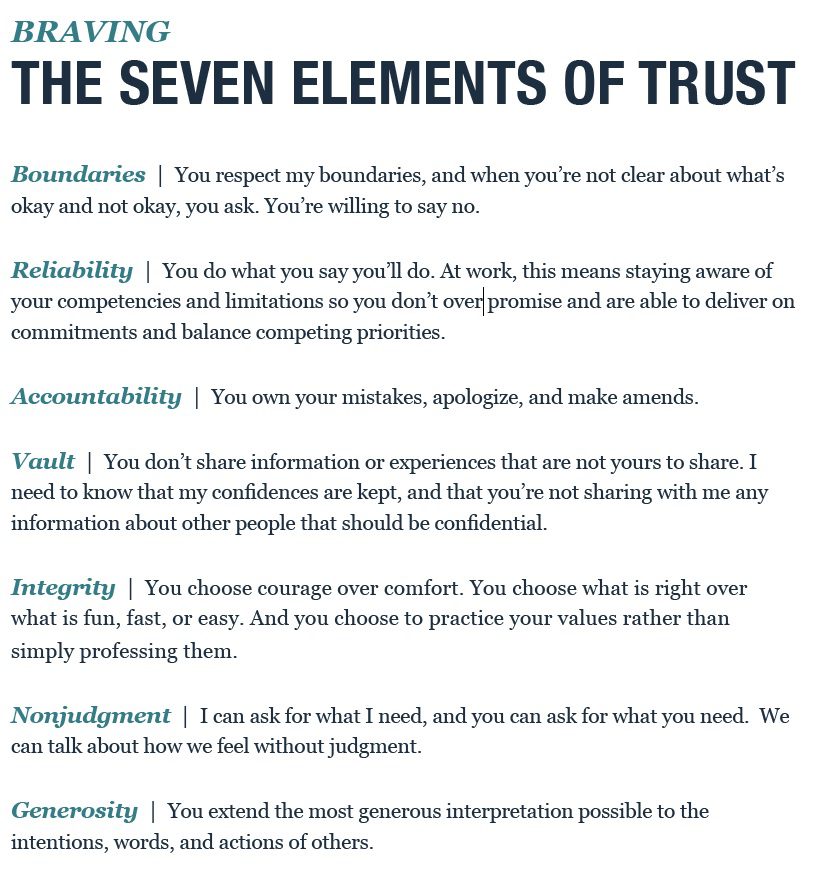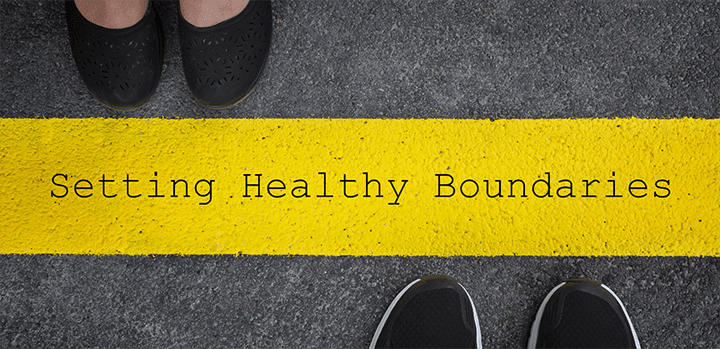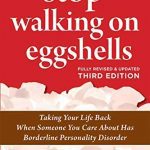You get what you tolerate.
We teach people how to treat us, we get what we allow. We live in a world where people would use you if you allow them to. It takes courage to set standards for your life as people would constantly take advantage of your insecurities. If you continue to give people the benefit of the doubt, eventually they would get the benefit and you get the doubt. This is a personal philosophy of mine: If you are not going to be there for me in my struggle, you are not going to come near my castle. As Maya Angelou once said, “If people show you who they are, believe them”. If people are always taking from your cup, you would not have anything to give eventually,
A lot of us allow ourselves to be used because we do not have or set healthy boundaries. I know it can be hard to set boundaries or say no, especially to family and friends. Knowing yourself (self-awareness) makes you see people for who they are: The narcissist, the drama king or queen, the codependent, the manipulator, and the gaslighters, etc. You need to say yes to yourself first, it might sound selfish but you need to care for yourself before you can care for others. We stay in toxic and destructive relationships as we convince ourselves that we can not live life without some people. The challenge with that thinking is that your time here is finite, but you keep allowing toxicity into your short life, which is not sustainable.
We do not set boundaries because of, among other things – our social conditioning, people-pleasing, peacekeeping, inability to say NO, pathological altruism, co-dependency, etc. Setting boundaries with people is important, but setting boundaries for ourselves is even more important.
Protect what you expect.
What are Boundaries?
A boundary is a personal property line that marks those things for which we are responsible. In other words, boundaries define who we are and who we are not. According to IPFW/Parkview Student Assistance Program:
A boundary is a limit or space between you and the other person; a clear place where you begin andthe other person ends . . . The purpose of setting a healthy boundary is, of course, to protect and take good care of you” (n.d.).
We can set boundaries for our time and energy, personal space, identity, posessions, culture, spirituality, ethics, values, marriage, thought process etc. Our Boundaries or lack of boundaries are shaped by among other things our upbringing, caregivers, family dynamics, life experiences, personality type (Introvert or extrovert), life experiences, worldview etc.
In his book, Boundaries: When to Say Yes, How to Say No to Take Control of Your Life, Author Henry Cloud defines boundaries:
Boundaries define us. They define what is me and what is not me. A boundary shows me where I end and someone else begins, leading me to a sense of ownership. In addition to showing us what we are responsible for, boundaries help us to define what is not on our property and what we are not responsible for. We are not, for example, responsible for other people. Nowhere are we commanded to have “other-control,” although we spend a lot of time and energy trying to get it!
Boundaries are anything that helps to differentiate you from someone else, or shows where you begin and end.
“People with poor boundaries struggle with saying no to the control, pressure, demands, and sometimes the real needs of others. They feel that if they say no to someone, they will endanger their relationship with that person, so they passively comply but inwardly resent. Sometimes a person is pressuring you to do something; other times the pressure comes from your own sense of what you “should” do. If you cannot say no to this external or internal pressure, you have lost control of your property and are not enjoying the fruit of “self-control.”
“The greatest discovery of my generation is that human beings can alter their lives by altering their attitudes of mind.” – William James
Setting healthy boundaries is very important in our relationships, whether with our family, friends, marriage, career, siblings, peers, etc. Dr. Henry Cloud & Dr. John Townsend writes in their book, Boundaries in Marriage:
To have good boundaries is to be separate enough from the other person that you can allow her to have her own experience without reacting with your own. Such a clear stance of separateness allows you not to react, but to care and empathize. Not allowing the other’s experience can be a major cause of fighting and of feeling misunderstood.
Susan Forward writes in her book Emotional Blackmail: When the People in Your Life Use Fear, Obligation, and Guilt to Manipulate
Most of us have a terrible time defining our boundaries, where our obligations to others begin and end. And when our sense of obligation is stronger than our sense of self-respect and self-caring, blackmailers quickly learn how to take advantage.
“At the heart of any kind of blackmail is one basic threat, which can be expressed in many different ways: If you don’t behave the way I want you to, you will suffer”
Every day of our lives, we teach people how to treat us by showing them what we will and won’t accept, what we refuse to confront, what we’ll let slide. We may believe that we can make another person’s troublesome behavior disappear if we just ignore it or don’t make a fuss, but the message we send when we’re not forthright about what’s unacceptable is “It worked. Do it again.”
In his book, Essentialism: The Disciplined Pursuit of less, author Greg McKeown writes:
The Essentialists see boundaries as empowering. They recognize that boundaries protect their time from being hijacked and often free them from the burden of having to say no to things that further others’ objectives instead of their own. They know that clear boundaries allow them to proactively eliminate the demands and encumbrances from others that distract them from the true essentials.
Boundaries are a little like the walls of a sandcastle. The second we let one fall over, the rest of them come crashing down.
There are three deeply entrenched assumptions we must conquer to live the way of the Essentialist: “I have to,” “It’s all-important,” and “I can do both. To embrace the essence of Essentialism requires we replace these false assumptions with three core truths: “I choose to,” “Only a few things really matter,” and “I can do anything but not everything.
Half of the troubles of this life can be traced to saying yes too quickly and not saying no soon enough. – Josh Billings


If it is not taking you to the next level, you need to keep a distance from it. The remote control is in your hands; you can either pause, stop or eject any relationship that is not taking you to the next level. The average life expectancy is around 82 years (30,000 days). We are going to sleep one-third of our lives (10,000 days), work, and commute to work would take around (3,500-4,000 days). Half of our lives would be spent sleeping and working; adding toxic relationships to the mix might take another 2,000 days of your short life.
“The difference between successful people and really successful people is that really successful people say no to almost everything.” – Warren Buffet
Most of us have been raised to always be cordial with people, hence we say yes even when we need to say NO. Anytime you say: “yes” to one request, you might have to defend it over time with 100 NOs. There is always a trade-off. We find it hard to say no to our family and friends, we make their issues become our priorities, we caretake their issues and we continue the codependent cycle endlessly. The key to saying no is to have and set clear boundaries for yourself and the people you interact with. Setting boundaries in all areas of our lives from emotional, spiritual, psychological professional, intellectual, and financial is very important in establishing one’s identity (individuality), letting people know who you are and what you stand for.
Learn to say NO and do not over-explain yourself. Never explain, those that need it do not matter, and those that matter, do not need it. NO is a complete statement, say it and follow through.
Do not let your history keep you in your misery.
Communication is Key
Communicating your boundaries is as important as having the boundaries in the first place. It is important to constantly communicate your boundaries are to people. When communicating to people, it is also important to understand the communication style you would adopt for different scenarios. The person you are dealing with would determine the communication style, you would adopt. Your responsibility is to communicate your boundaries and not how the receiver would accept your boundaries.
According to Psychotherapist Stephanie Moulton Sarkis Ph.D., author of Gaslighting: Recognize Manipulative and Emotionally Abusive People: In your quest to be healthier, it’s helpful to look at how you interact and communicate with others. There are three main styles of communication: passive, aggressive, and assertive.
Passive Communication:
Passive statements are usually said in a quieter voice and without much eye contact. In passive communication, what’s being conveyed is “I’m not okay, you’re okay.” You don’t state your own needs, you placate, trying to make the other person happy while ignoring what you want.
Aggressive Communication:
In aggressive communication, on the other hand, the setup is “I’m okay, you’re not okay.” You state your needs without considering the other person. Your voice is louder than usual. Aggressive communication can also take the form of smiling while saying something vicious.
Passive-Aggressive Communication:
In a passive-aggressive speaking style, you don’t let your needs be known, but you act out toward the other person. You might say, “Sure, you can borrow my sweater,” but you then “forget” to give the other person her mail or talk badly about her. You are denying your rights and trampling on the other person.
Assertive Communication:
In assertive communication, or “I’m okay, you’re okay,” you state your needs while also being respectful of the other person. “I’m sorry, I don’t loan out that sweater.” You are stating your needs (not giving out your sweater) in a respectful way. You are not calling the person names or using an angry tone. Assertive communication is the healthiest way to express your needs.
Of the above-stated communication styles, assertive communication seems to be the most productive when communicating your boundaries. Communicate your boundaries but do not over-communicate. If someone continues to violate your boundaries, the onus is on you to enforce the consequence of such violations.
Don’t Try to Change People, you can only change yourself
Marriage and Family Therapist Margalis Fjelstad writes in her book, Stop Caretaking the Borderline or Narcissist – YOU HAVE CONTROL ONLY OVER YOURSELF. She states:
Here is another uncomfortable truth: you have no control over anyone or anything else other than yourself. There are exactly two categories of things that you have the full power to change: your behavior and your thoughts.
If you can’t control something, you can’t directly change it. If you are not directly changing something, then you are manipulating or trying to coerce the change.
It takes a lot of us time to realize that people who continuously violate our boundaries are not going to change no matter how much you try. The key to getting your boundaries respected is to enforce the consequences of violating the boundaries. Show, Don’t Tell.
Boundaries need to be communicated first verbally and then with actions.Henry Cloud
Enforce Consequences
It is not enough to set clear healthy boundaries, they need to be enforced. If someone continuously breaks your boundaries, the next step is to enforce the consequences of violating the boundaries. There is a time for discussion and there is a time to act. Not enforcing our boundaries can have grave consequences for us and our relationships. The effect include stress, anger, frustration, burnout, financial issues, misuse of your finite time and relationship burden, etc
Boundaries can be hard to set but you have to set them for your own sanity and self-care. It is not enough to set boundaries, you need to enforce the consequence of violating your boundaries. It might seem selfish but you need to protect your emotional space and well-being. You can not give what you do not have. When you begin to set your boundaries, be ready for guilt-tripping, shaming, gaslighting, manipulation, etc. You need to stay your ground and enforce your boundaries.
All the Best in your quest to get Better. Don’t Settle: Live with Passion.



Comments are closed.